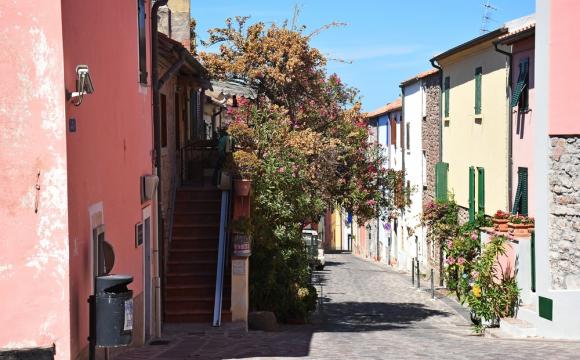 The Italian bee population fell by almost half in 2007, spelling disaster for honey production and threatening farming as a whole, experts said on Tuesday.
The Italian bee population fell by almost half in 2007, spelling disaster for honey production and threatening farming as a whole, experts said on Tuesday.
A conference organized by the Italian environment agency APAT, reported that pollution, climate change and disease were behind the plummeting numbers.
It estimated that some 200,000 hives disappeared during 2007.
While honey production was hit first, with an estimated 20-50% drop in output, the smaller bee population also affected other agricultural sectors.
A third of all farm produce depends on insect pollination, according to Italian farmers' union Coldiretti. Around 80% of this is carried out by bees.
Fewer bees last year meant crops went unpollinated, with a consequent loss to farmers of around 250 million euros, APAT said, adding that northern Italy was hit hardest.
If the bee population continues to fall, it warned that even meat production could eventually be hit, as bees also pollinate many of the forage crops cattle feed on.
The high bee mortality rate was said to be the result of several factors, including poor hive hygiene, pollution and electromagnetic radiation from mobile phones.
Last year also saw a resurgence in disease, particularly the parasitic vampire mite, which wreaks havoc among already weakened hives.
Another problem, said experts, was last year's soaring temperatures and longer-than usual summer, which some attributed to climate change.
As early as last August, Italian beekeepers were warning that honey production would take a hit as a result of the unusual weather conditions.
The National Union of Italian Beekeepers (UNAAPI) said above-average temperatures caused many varieties of flower and fruit to bloom ahead of season, a problem compounded by the use of powdered insecticides.
''The crazy weather combined with the effects produced by powdered insecticides sown with crop seeds, especially corn, are wiping out the field bees, which look for nectar and pollen,'' UNAAPI Chairman Francesco Panella said at the time.
At Tuesday's meeting, APAT said irregular climate patterns could also break the ''normal flow of nutrients'' bees need for their natural defence system.
Experts at the conference said the situation in Italy reflected a wider problem afflicting bees.
Beekeepers across Europe have reported difficulties, while up to 60%-70% of the bee population was wiped out in some parts of the US last year.
The aim of the APAT conference was to launch a project aimed at tackling the situation. The first step will be the monitoring of bee populations to establish why bees are dying in different parts of the country.
The next step will be promoting research on disease and harmful environmental factors.
The Italian bee industry is worth 1.6 billion euros annually, with each hive generating about 1,240 euros.












